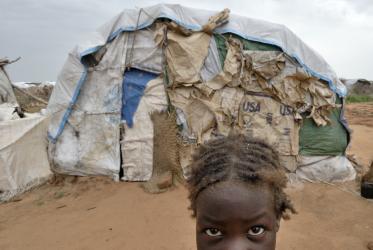1. During the 9th Assembly, the World Council of Churches affirmed the emerging international norm known as the responsibility to protect'. The Assembly, in its "Vulnerable Populations at Risk: Statement on the Responsibility to Protect", gives international church support to a new standard of protection for civilians when a state cannot or will not protect them.
2. "It is in those who are most vulnerable that Christ become visible for us," the Assembly said, "The responsibility to protect the vulnerable reaches far beyond the boundaries of nations and faith-traditions. It is an ecumenical responsibility, conceiving the world as one household of God "
3. The responsibility to protect has three pillars: the prevention of catastrophic violence against civilians, the need to react if such violence occurs, and assistance in rebuilding and reconciliation afterwards. The norm defines state sovereignty in terms of duties and obligations for the well being of civilians rather than as an absolute power. It limits, but does not exclude, the use of force in protective interventions for humanitarian purposes.
4. Meeting in the country of Armenia, where genocide nearly a century ago still casts a deep shadow, we reiterate the international responsibility to protect people at risk in the Darfur region of Sudan and in neighbouring Chad. Important protective measures there have largely failed so far. Broader multilateral action is authorized but implementation is slow. Therefore:
A. We call member churches once again to bring the protection of people in Darfur to the attention of their governments, making use of the WCC 9th Assembly policy on the responsibility to protect'. Noting that UN Security Council Resolution 1706 on Darfur is the first time the Security Council has referred to the responsibility to protect in a specific country crisis, we recommend that churches request their governments to pay special attention to its implementation.
B. We reiterate the Executive Committee's request (Statement on Sudan', May, 2006) that ecumenical delegations make fact-finding and solidarity visits to the region including Darfur. Member churches are also encouraged to provide humanitarian aid to Darfur through ACT International and to hold its people in their prayers.




